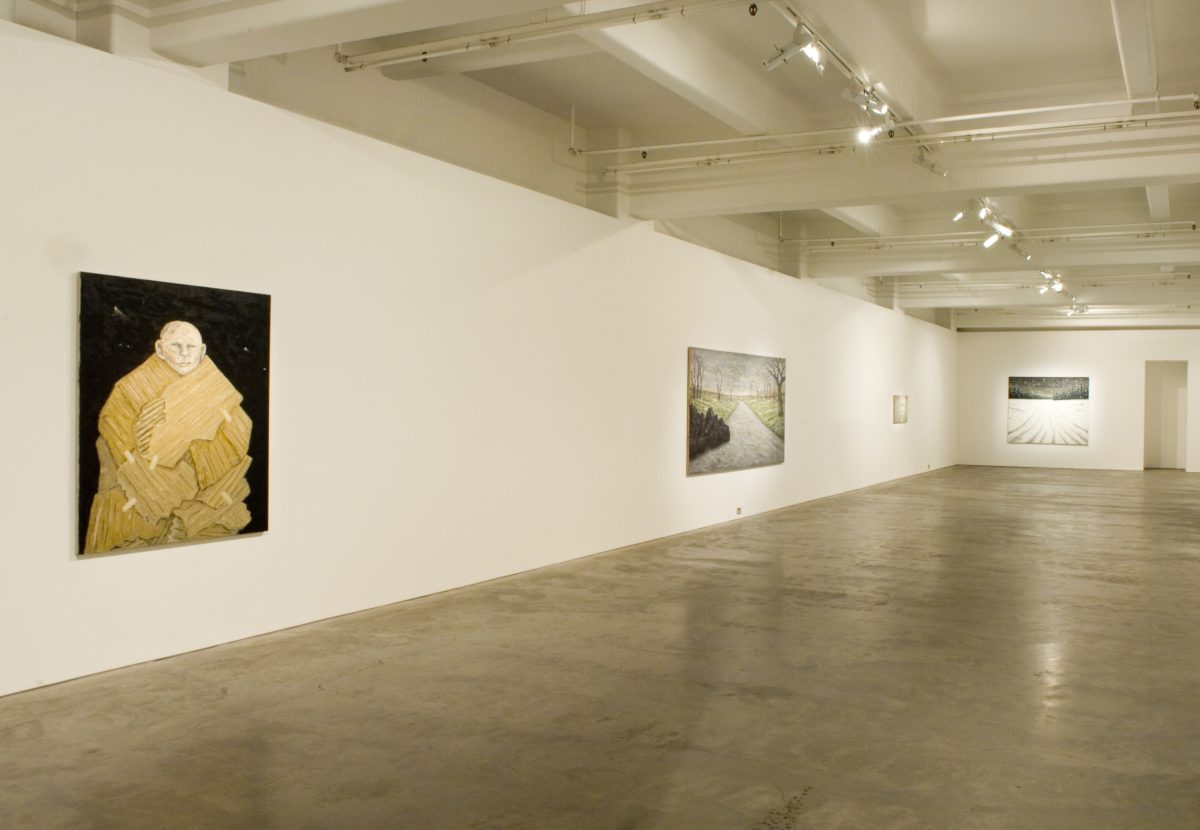Peter Booth
21st Century
8th – 31st May 2008
Anna Schwartz Gallery
How did you end up in this mess? Who’s to blame? How are you going to get out of here? There has to be some way of explaining all this uncertainty, but you wouldn’t know who to ask. Even if you did, you wouldn’t trust them if they told you. Even if what they had to say seemed plausible. And who are you, anyway? It’s the postmodern condition, you might have heard. The death of metanarratives, multiple voices, heterogeneity beyond belief, unrepresentable futures, risk, uncertainty, world-historical nihilism. Neither Theory and Method nor New Ways of Thinking are going to help. In fact, it’s those modernist obsessions with theory, method, new ways of doing things, that got us into this Gen-Existential Crisis in the first place. It’s a Complex Issue, not easily resolved. These days, things don’t get clearer when they’re explained. The explanations just confuse things more. No gods, no masters, as one of the great anarchist slogans had it. Isn’t that the problem, though? No one to believe, no one to obey. Just the sort of thing the great Russian writer Fyodor Dostoyevsky abominated. Dostoyevsky is here with me right now. If god’s dead, he whispers, everything is permitted. A tide of anarchy is loosed upon the world. Yet, at the mouth of this apocalyptic river, things, strangely enough, seem tighter than ever. Take the 10 things I really care about. The environment’s stuffed. Love’s stuffed. Even bunny rabbits, doing it au naturale, find the thing unsustainable. Politics is stuffed.
The rainbow warrior has become a Steiner school toy. Capitalism is stuffed. Art, too, is stuffed. That’s why the French psychoanalyst Jacques Lacan thought he needed to correct Dostoyevsky. If god’s dead, wrote Lacan, then nothing’s permitted. The conflict in every human heart is fed by some kind of God or Master. What would you do without one? Anarchy without action, constraint without prohibition, crisis without creation. So what’s left in our own little Apocalypse Now? Maybe a spot of dancing with the Modern Ladies, or the public-art peripeteia of Sculptural Cringe? It’s not always the early bird who catches the worm. As the great German philosopher G.W.F. Hegel wrote, the owl of Minerva only takes flight at dusk. Perhaps, then, it’s from a night of confusion and indistinction that art will unexpectedly reemerge to life.
Justin Clemens, 2006
Images

Peter Booth
21st Century, 2008
installation view, Anna Schwartz Gallery
